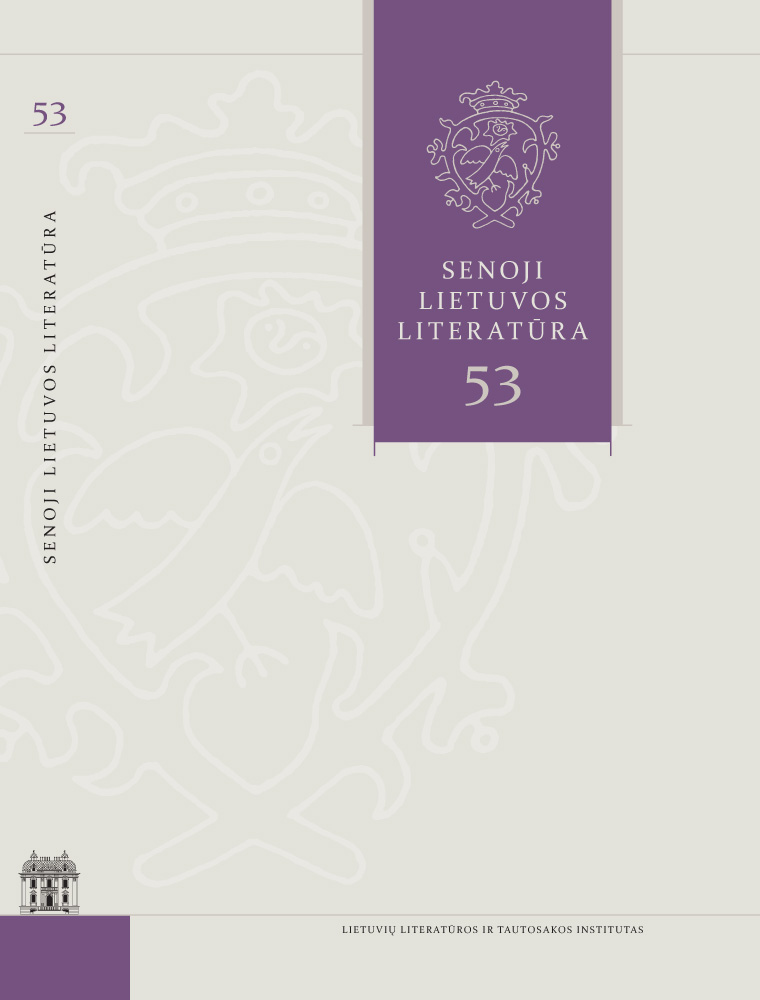Multilingual Verses in 1809 Marijampolė. Discoveries, Meanings, Hypotheses
Abstract
Polish literary historians have drawn a great deal of attention to patriotic writing, military poems of the period between 1807 and 1814. The year 1809, when the Duchy of Warsaw regained the lands occupied by Austria, was a special time of creative ascent. The fact that these poems were also written in Lithuanian is a novelty that has not been studied so far. The article presents a new source – a manuscript book of the silva rerum genre – by Andrzej Katyll (Lith. Andriejus Katilius), a professor and a priest at the Marian monastery school in Marijampolė. It contains over a hundred of Polish, a number of Latin, and three Lithuanian poems. A bilingual 72-line poem of 1809 – a greeting to a Lithuanian and a Pole on the occasion of the opening of the Marijampolė sejmik (local parliament) – deserves special attention. The article is based on the hypothesis that this poem is part of a public paratheatrical event. This is the first and only case in the history of old Lithuanian parliamentarianism: no other evidence was found that Lithuanian was used in local parliaments.
In 1809, sejmik of Marijampolė supported the cycle of military poems (in Polish) by Hiacynt Jabłoński. This is a new fact in Lithuanian studies. It is hypothesised that the public use of the Lithuanian language was legalised by the old rhetorical culture, that took root in the Baroque era and spread through the system of schools.
The article also examines the Lithuanian work of 1809, ‘The Song of the Marijampolians’, supposedly anonymous. It represents knightly ethos and a secular conception of honour; the motif of a military victory in saving the homeland, Lithuania, prevails in it. In the context of Lithuanian literature, which was dominated by religious writing, it is a novelty and one of the first instances. Hypotheses are raised about the functioning of this work.
All the facts and hypotheses presented here introduce some adjustments to the general conception of early Lithuanian literature, in which the region on the left bank of the Nemunas River (Suwalszczyzna, formerly part of the Duchy of Warsaw and later of the Kingdom of Poland) was considered to be ‘slumbering’, that is, not involved in the literary creative process until the mid-nineteenth century.

This work is licensed under a Creative Commons Attribution 4.0 International License.




